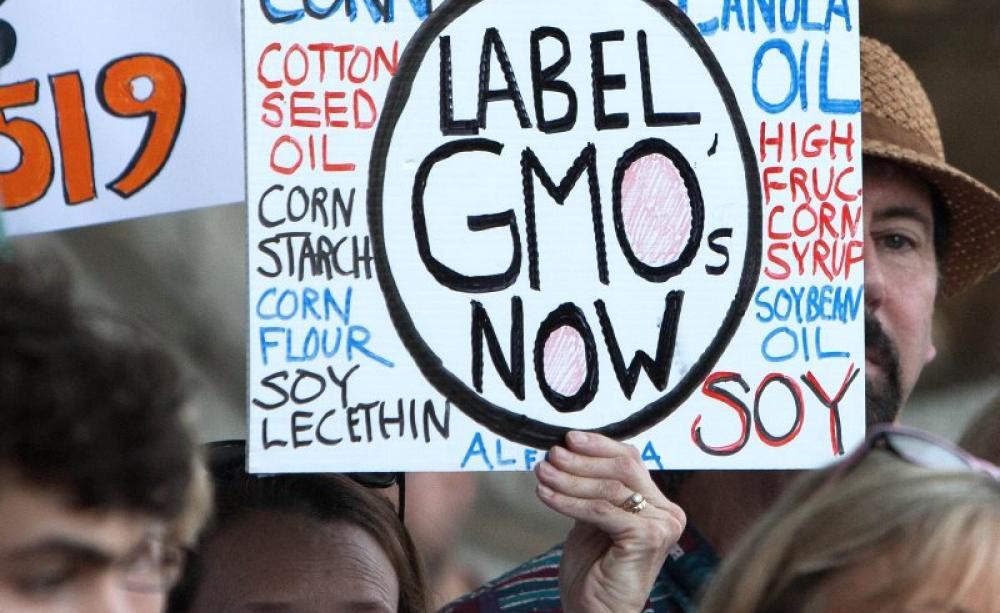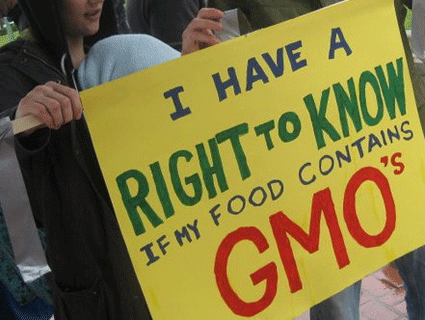US Court Says No to QR Codes for GMO Labeling
For more than 10 years, many of us have been working on getting GMO’s labeled so consumers could know what they were buying or consuming. It has been an uphill battle but during those 10 years consumer awareness has been greatly raised about GMOs, and their accompanying pesticides and herbicides, like glyphosate. We shared the dire health consequences of GMOs as reported by Dr. Don Huber, and the importance of GMO labeling. That awareness has helped many avoid GMOs and toxic chemicals but, we still have the right to know what is in our food. The latest results by the U.S. Court says no to QR Codes for labeling and it is a victory that is well overdue.
Learn more below as first reported by Sustainable Pulse.
A U.S. District Court has held that the U.S. Department of Agriculture (USDA)’s decision to allow genetically engineered (GMO) foods to only be labeled with a “QR” code was unlawful, and that USDA must instead add additional disclosure options to those foods under USDA’s National Bioengineered Food Disclosure Standard. The Court sent back to the agency the QR code portions of the 2018 Trump administration rules for GMO labeling that went into effect on January 1, 2022, which hindered consumer access with burdensome electronic or digital disclosures.
“This is a victory for all Americans,” said Meredith Stevenson, Center for Food Safety (CFS) staff attorney and counsel in the case. “Today’s decision marks a key step toward ending the food industry’s deceptive and discriminatory GMO food labeling practices, which have kept consumers in the dark by concealing what’s in their products.”
CFS filed the case against USDA in 2020 on behalf of a coalition of nonprofits and retailers, including Natural Grocers, operating 157 stores in 20 states, and Puget Consumers Co-op, the nation’s largest community-owned food market. The lawsuit followed the USDA’s rulemaking in December 2018, which would have discriminated against tens of millions of Americans by permitting the use of QR codes alone on packaging after USDA itself found QR code labeling insufficient.
The lawsuit followed an over twenty year campaign led by CFS to get GMO labeling in the U.S., as it is in over 60 countries around the world, including state legislation and culminating in the first ever federal GMO labeling law.
“The court has now confirmed that the USDA acted unlawfully in allowing standalone QR code and other digital and electronic GMO labeling,” said Andrew Kimbrell, Executive Director of Center for Food Safety. “This should be a warning to the industrial food sector that avoiding clear on packaging labeling by using QR codes alone will not pass legal scrutiny. CFS will continue to work to ensure every American’s right to know what is in their food.”
The court ruled that USDA’s decision to allow for electronic or digital disclosure alone on packaging, also known as “QR code” or “smartphone” labeling, without requiring additional on-package labeling, was a “significant error.” USDA violated the law in allowing QR codes alone despite Congress’s “straightforward” mandate requiring the agency to first study whether digital disclosure would provide meaningful information to consumers to improve accessibility, and to remedy it if it found them insufficient. In 2018, CFS successfully sued USDA to release the study, and it showed conclusively that QR codes would fail. But in this final rule USDA went ahead with it anyway.
The court decision explained that “in mandating a study on the accessibility of the electronic disclosure, and directing the USDA to act only if the electronic disclosure was determined to be inaccessible, Congress clearly intended for the USDA to provide “additional and comparable options” to improve the accessibility of the electronic disclosure method.”
USDA will now need to revise the portions of its 2018 rules that allow for QR code labeling and remove the option of QR codes alone on the package. Instead, USDA will be required to add an additional disclosure option to QR code labeling accessible to all Americans.
The court sided with USDA on several other challenges brought by the Plaintiffs, including upholding USDA’s use of the new, unfamiliar terminology, “bioengineered” and disallowing “GE” or “GMO.” The court also ruled that USDA may also continue excluding “highly refined” products from mandatory disclosure unless the GE material is “detectable” by a manufacturers’ chosen testing method. For these rulings “the Plaintiffs will be considering all options, including appeal,” according to Stevenson.
Food Integrity Now is so grateful to all the organizations like Moms Across America, GMO Free USA, U.S. Right to Know, Label GMOs, Center for Food Safety, just to name a few who helped over the years to raise awareness about GMOs and their toxic pesticides. We also want to thank people like you who helped by either going to rallies, writing your representatives, telling a friend or family member, and taking a stand to support organic foods by saying no to GMOs. Keep saying No as OUR WORK IS NOT DONE!
We also thank those who continue to support our organization by sharing these posts and by supporting our health store. Your effort and support keeps us going! We love you!



0 Comments